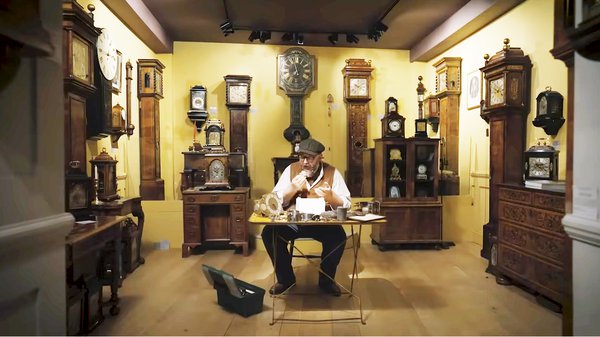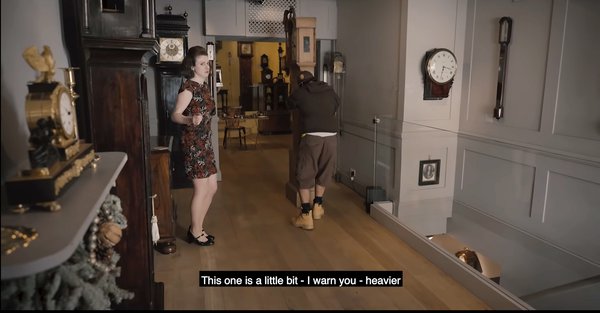A musical romp in an antique clock shop
This post was written by Peter de Clercq
Howard Walwyn deals in fine antique clocks in Kensington Church Street, London. While his shop was closed for normal business due to the Covid crisis, he allowed it to be used for a remarkable musical entertainment: a filming of Maurice Ravel’s comical opera L’Heure Espagnole.

First performed in 1911, the opera is set in a clockmaker's shop in eighteenth-century Toledo. The title can be translated literally as ‘The Spanish Hour’, but the word heure more importantly means ‘time’ – ‘Spanish Time’, with the connotation ‘How They Keep Time in Spain’.
It is the story of a clockmaker and his wife, who hopes to have some private pleasure in the hour her husband is out winding the municipal clocks. However, the presence of a muleteer (here modernized as a UPS courier) who came in to have his watch repaired throws a spanner in the works.
It is a delightful romp – a farce – with two would-be lovers hiding inside the cases of long-case clocks (the pendulums do not appear to have been in the way!) and both ending up being persuaded to buy a clock after the clockmaker has returned.
For more information and a synopsis of the action, see here.

The opera is sung in original French with English subtitles. It is a small affair by opera standards: just 50 minutes long, and only five characters, no choir. It was pre-recorded in the Wigmore Hall in London, and the (excellent) singers acted out their roles in the shop. In this small-budget production the orchestra is replaced by a piano, but that doesn't detract from the pleasure of seeing and hearing it performed with such gusto.
The opera has been staged regularly since 1911, and will undoubtedly have many more performances. But it will never be repeated with such an abundance of authentic ‘props’ as can be seen in this entertaining video recorded in Howard Walwyn’s shop.